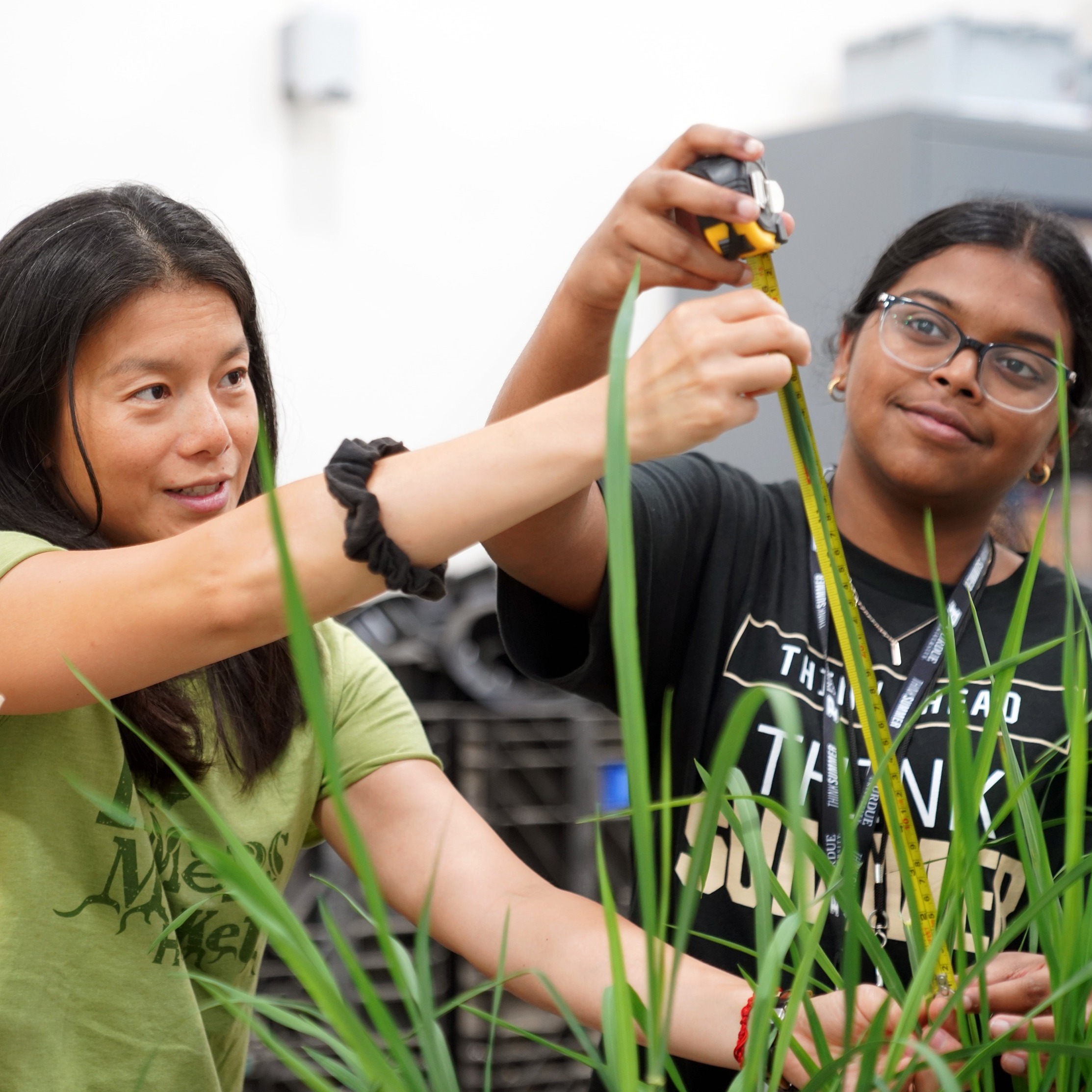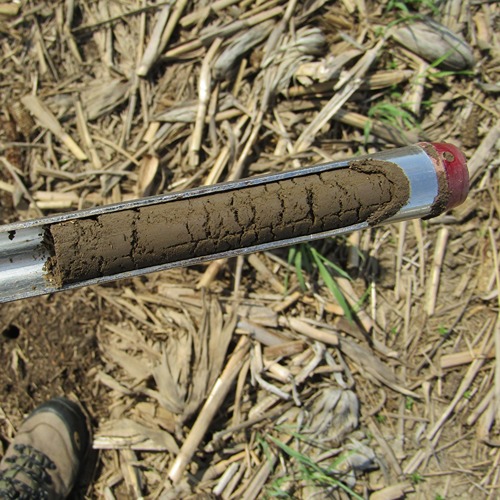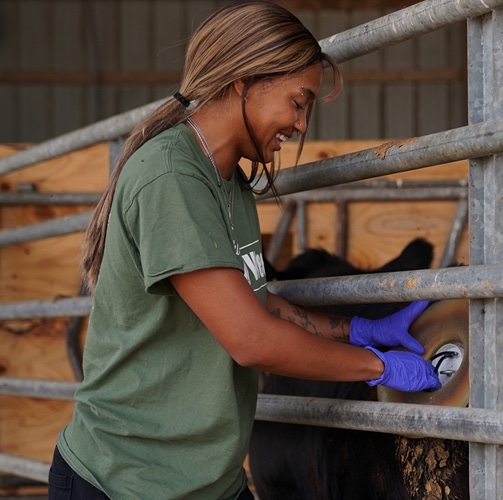About the feature
Many people are involved in the remarkable range of programs, services and facilities that undergird research in the College of Agriculture. Collectively they’re integral to the college fulfilling its research mission. “Behind the Research” explores their individual roles. Each academic year, we profile six people whose work supports the College of Agriculture’s global reputation for developing innovative, multidisciplinary solutions to challenges and then putting those solutions into action.

Anton Terekhov, Analytical Chemist and Managing Director of Analytical Services, Whistler Center for Carbohydrate Research
- Joined the Whistler Center in 2007 as an analytical chemist with an increasing range of responsibilities since then.
- Supports research and graduate education in the College of Agriculture through his own research and by training graduate students on analytical instrumentation.
- Part of marketing efforts to raise awareness and recognition of the Whistler Center.
Anton Terekhov knows it’s important to keep the analytical instrumentation at the Whistler Center for Carbohydrate Research operating properly. But even as he focuses on maintaining the equipment, he also values the human talent that surrounds him at work every day.
“The Whistler Center is unique because faculty and staff with different expertise are brought together and look at a problem from different perspectives,” he says. The center conducts research and offers a range of analytical services to those using or researching complex carbohydrate structure and function for food and non-food applications.
“If industry comes to us with a question, they need our analytical ability,” Terekhov adds. “Some of them have billion-dollar R&D budgets and state-of-the-art equipment, but they come to us for expertise — the ability to interpret or develop a method for their needs.”
Terekhov trained as analytical chemist with an emphasis on instrumentation. His main research area is carbohydrate analysis using analytical instruments such as mass spectrometry, gas chromatography, liquid chromatography and NMR spectroscopy, to name a few. He likes working with the varied equipment at the Whistler Center, he says, “because it is straightforward. It’s either working or not working, and there’s no second guessing.” And when the instrumentation doesn’t work, it’s up to Terekhov to figure out why.
He grew up in Russia and came to the U.S. to pursue his education. As an undergraduate at the University of Tennessee, he worked at its Center for Environmental Biology with Bruce Applegate, then a postdoc and now an associate professor of food science at Purdue. Applegate would go on to join Purdue’s food science faculty, and in 2007, encouraged Terekhov to come to the Whistler Center as an analytical chemist. Purdue wasn’t completely foreign to Terekhov: earlier he had helped a mentor move from Tennessee to West Lafayette to fill a position at Purdue.
Terekhov’s job has evolved to encompass a wide range of responsibilities. In addition to maintaining most of the analytical equipment in Whistler Center to ensure its correct operation, he analyzes samples for projects with private food companies like Nestlé or General Mills. He works with students on their research and theses, training them how to use the center’s analytical equipment and overseeing their progress. And he also is involved on the business side of the Whistler Center in marketing and contracts.
“The appeal of the job is that I do all those things together,” he says. “I have different tasks every day. I don’t get tired of it because there’s always something new to do.”
His position involves occasional travel for projects and education. When the center orders new equipment, for example, he often receives training at the company that is providing it.
Working with graduate students on their thesis projects is both challenging and rewarding, Terekhov says. “I’m proud of helping students take the next step for their success,” he says. “I think that’s the most important aspect of my satisfaction here at Purdue.”
Teaching graduate students how to use analytical equipment and interpret data is also beneficial to Terekhov’s own knowledge he adds: “When I help them, that provides insight into new research.” His research has been published numerous times in carbohydrate journals.
Terekhov also enjoys his colleagues. “I think I’m fortunate to be surrounded by great people — great personally and professionally. The supporting staff is amazing. I used to play soccer and I know that ‘team’ is very important. You’re as good as your team.”





